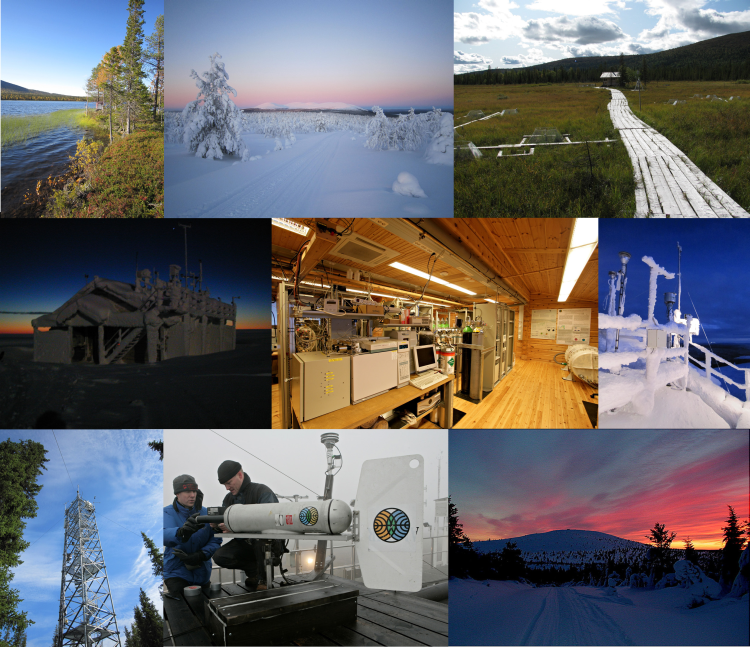Current research activities
Extensive cooperation nationally and internationally
A wide range of environmental research is conducted within the Pallas area by the FMI, the Natural Resources Institute Finland (LUKE), the Finnish Environment Institute (SYKE) and the Geological Survey of Finland (GTK). In addition to the engagement of several national institutes, there is active cooperation with foreign institutes and universities, such as the Swedish Environmental Research Institute (IVL), the US National Oceanic and Atmospheric Administration (NOAA), and Royal Holloway University of London, UK.
Pallas's atmosphere-ecosystem research is highly valued globally, given its location north of the Arctic Circle where similar research stations are few. Many of the activities at Pallas are part of international research programmes.

Extensive interdisciplinary research
The main research themes of FMI include greenhouse gas concentrations and ecosystem–atmosphere fluxes, the climate effects of atmospheric aerosols, aerosol–cloud interactions, atmospheric chemical reactivity as well as variations and causes in the atmospheric composition.
SYKE is focusing on the effects of air pollution on ecosystems, climate effects on hydrology, the physical, chemical and biological characteristics of surface waters and the deposition of persistent organic pollutants (POPs) .
At the aquatic sites Lake Pallasjärvi, Lake Keimiöjärvi and River Pallasjoki, LUKE is responsible for the collection of fish status data for surveillance monitoring and ecological classification according to the EU Water Framework Directive. LUKE also monitors population dynamics, parasites and pathogens of small rodents, forest condition (ICP Forest), dynamics of natural forests and timberline forests, and the timing of spring and autumn phenophases.
GTK is currently studying soil hydrological changes with a particular interest in snow accumulation, snowmelt and soil freezing mechanisms, which are related to treeline dynamics.
